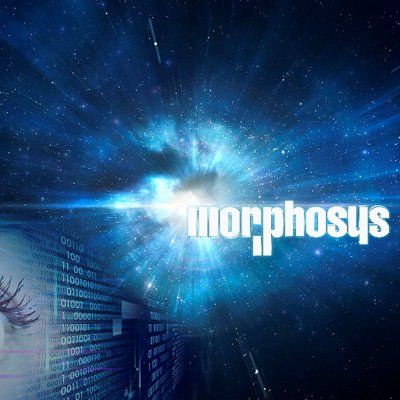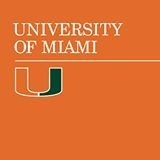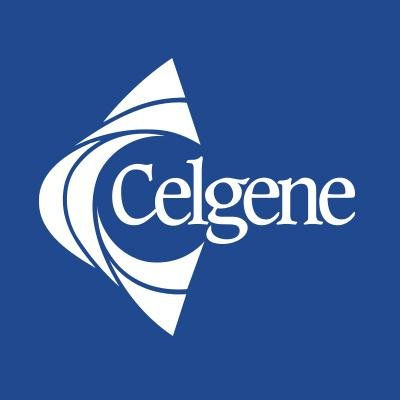预约演示
更新于:2026-02-08

MorphoSys AG
更新于:2026-02-08
概览
标签
免疫系统疾病
肿瘤
血液及淋巴系统疾病
单克隆抗体
降解型分子胶
小分子化药
疾病领域得分
一眼洞穿机构专注的疾病领域
暂无数据
技术平台
公司药物应用最多的技术
暂无数据
靶点
公司最常开发的靶点
暂无数据
| 排名前五的药物类型 | 数量 |
|---|---|
| 小分子化药 | 14 |
| 单克隆抗体 | 7 |
| 降解型分子胶 | 1 |
| 双特异性T细胞结合器 | 1 |
关联
23
项与 MorphoSys AG 相关的药物靶点 |
作用机制 CD19抑制剂 [+2] |
在研机构 |
原研机构 |
最高研发阶段批准上市 |
首次获批国家/地区 美国 |
首次获批日期2020-07-31 |
作用机制 JAK1抑制剂 [+1] |
原研机构 |
最高研发阶段批准上市 |
首次获批国家/地区 美国 |
首次获批日期2011-11-16 |
作用机制 CK1α抑制剂 [+3] |
原研机构 |
非在研适应症 |
最高研发阶段批准上市 |
首次获批国家/地区 美国 |
首次获批日期2005-12-27 |
28
项与 MorphoSys AG 相关的临床试验NCT06029309
A Phase 1/2 Study of Zanubrutinib and Tafasitamab in Mantle Cell Lymphoma
The main purpose of this study to find the ideal dose for the combination treatment of Zanubrutinib and Tafasitamab in patients with mantle cell lymphoma. Another purpose is to assess how well the combination treatment works in patients with the study disease.
开始日期2024-05-03 |
申办/合作机构  University of Miami University of Miami [+3] |
NCT05626322
A PHASE 1b/2 STUDY OF PF-07901801, A CD47 BLOCKING AGENT, WITH TAFASITAMAB AND LENALIDOMIDE FOR PARTICIPANTS WITH RELAPSED/REFRACTORY DIFFUSE LARGE B CELL LYMPHOMA NOT ELIGIBLE FOR STEM CELL TRANSPLANTATION
The purpose of this study is to learn about the effects of three study medicines [maplirpacept (PF-07901801), tafasitamab, and lenalidomide] when given together for the treatment of diffuse large B-cell lymphoma (DLBCL) that:
* is relapsed (has returned after last treatment) or
* is refractory (has not responded to last treatment)
DLBCL is a type of non-Hodgkin lymphoma (NHL). NHL is a cancer of the lymphatic system. It develops when the body makes abnormal lymphocytes. These lymphocytes are a type of white blood cell that normally help to fight infections.
This study is seeking participants who are unable or unwilling to undergo an autologous stem cell transplantation (when doctors put healthy blood cells back into your body) or CAR-T immune cell therapy.
Everyone in this study will receive three medicines: maplirpacept (PF-07901801), tafasitamab and lenalidomide. Participants will receive maplirpacept (PF-07901801) and tafasitamab at the study clinic by intravenous (IV) infusion (given directly into a vein) and lenalidomide will be taken by mouth at home. Study interventions will be administered in 28-day cycles. Maplirpacept (PF-07901801) will be given weekly for the first three cycles and then every two weeks. Tafasitamab will administered on Days 1, 4, 8, 15 and 22 in cycle 1, weekly in cycles 2 and 3 and then every 2 weeks in cycle 4 and beyond. Lenalidomide will be taken every day for Days 1 to 21 of each 28-day cycle for the first 12 cycles.
Participants can continue to take maplirpacept (PF-07901801) and tafasitamab until their lymphoma is no longer responding. Lenalidomide is discontinued after 12 cycles.
Maplirpacept (PF-07901801) will be given at different doses to different participants. Everyone taking part will receive approved doses of tafasitamab and lenalidomide. We will compare the experiences of people receiving different doses of PF-07901801. This will help us to determine what dose is safe and effective when combined with the other 2 study medicines.
* is relapsed (has returned after last treatment) or
* is refractory (has not responded to last treatment)
DLBCL is a type of non-Hodgkin lymphoma (NHL). NHL is a cancer of the lymphatic system. It develops when the body makes abnormal lymphocytes. These lymphocytes are a type of white blood cell that normally help to fight infections.
This study is seeking participants who are unable or unwilling to undergo an autologous stem cell transplantation (when doctors put healthy blood cells back into your body) or CAR-T immune cell therapy.
Everyone in this study will receive three medicines: maplirpacept (PF-07901801), tafasitamab and lenalidomide. Participants will receive maplirpacept (PF-07901801) and tafasitamab at the study clinic by intravenous (IV) infusion (given directly into a vein) and lenalidomide will be taken by mouth at home. Study interventions will be administered in 28-day cycles. Maplirpacept (PF-07901801) will be given weekly for the first three cycles and then every two weeks. Tafasitamab will administered on Days 1, 4, 8, 15 and 22 in cycle 1, weekly in cycles 2 and 3 and then every 2 weeks in cycle 4 and beyond. Lenalidomide will be taken every day for Days 1 to 21 of each 28-day cycle for the first 12 cycles.
Participants can continue to take maplirpacept (PF-07901801) and tafasitamab until their lymphoma is no longer responding. Lenalidomide is discontinued after 12 cycles.
Maplirpacept (PF-07901801) will be given at different doses to different participants. Everyone taking part will receive approved doses of tafasitamab and lenalidomide. We will compare the experiences of people receiving different doses of PF-07901801. This will help us to determine what dose is safe and effective when combined with the other 2 study medicines.
开始日期2023-08-04 |
申办/合作机构  Pfizer Inc. Pfizer Inc. [+2] |
ISRCTN10750305
An Open-Label, Single-Dose, Single-Period Study to Assess the Mass Balance Recovery, Metabolite Profile and Metabolite Identification of [14C]-pelabresib in Healthy Male Subjects
开始日期2022-11-22 |
100 项与 MorphoSys AG 相关的临床结果
登录后查看更多信息
0 项与 MorphoSys AG 相关的专利(医药)
登录后查看更多信息
106
项与 MorphoSys AG 相关的文献(医药)2025-05-01·NATURE MEDICINE
Pelabresib plus ruxolitinib for JAK inhibitor-naive myelofibrosis: a randomized phase 3 trial
Article
作者: Mesa, Ruben ; Chraniuk, Dominik ; Harrison, Claire N ; Boxhammer, Rainer ; Gerds, Aaron T ; Lavie, David ; Lee, Sung-Eun ; Li, Qing ; Talpaz, Moshe ; Oh, Stephen T ; Mascarenhas, John ; Lucchesi, Alessandro ; Grosicki, Sebastian ; Álvarez-Larrán, Alberto ; Patriarca, Andrea ; Brown, Barbara ; Scandura, Joseph M ; Vannucchi, Alessandro M ; Abruzzese, Elisabetta ; Harris, Morgan ; Bose, Prithviraj ; Jegg, Anna-Maria ; Kays, Sarah-Katharina ; Kuykendall, Andrew T ; Gupta, Vikas ; Palandri, Francesca ; Kiladjian, Jean-Jacques ; Rampal, Raajit K
Janus kinase (JAK) inhibitors provide limited depth and durability of response in myelofibrosis. We evaluated pelabresib-a bromodomain and extraterminal domain (BET) inhibitor-plus ruxolitinib (a JAK inhibitor) compared with placebo plus ruxolitinib as first-line therapy. In this phase 3 study (MANIFEST-2), JAK inhibitor-naive patients with myelofibrosis were randomized 1:1 to pelabresib 125 mg once daily (QD; 50-175 mg QD permitted) for 14 days followed by a 7-day break (21-day cycle), or to placebo in combination with ruxolitinib 10 or 15 mg twice daily (BID; 5 mg QD-25 mg BID permitted). Primary endpoint was reduction in spleen volume of ≥35% from baseline at week 24. Key secondary endpoints were absolute change in total symptom score (TSS) and TSS50 response (≥50% reduction in TSS from baseline at week 24). The primary endpoint was met in 65.9% of patients randomized to pelabresib-ruxolitinib (n = 214) versus 35.2% to placebo-ruxolitinib (n = 216) (difference, 30.4%; 95% confidence interval (CI), 21.6, 39.3; P < 0.001). Absolute change in TSS was -15.99 versus -14.05 (difference, -1.94; 95% CI, -3.92, 0.04; P = 0.0545) and TSS50 was achieved in 52.3% versus 46.3% (difference, 6.0%; 95 CI, -3.5, 15.5) with pelabresib-ruxolitinib versus placebo-ruxolitinib. Exploratory analyses of proinflammatory cytokine amounts and bone marrow morphology showed greater improvement with the combination. Thrombocytopenia and anemia were the most common treatment-emergent adverse events, occurring in 52.8% (13.2% grade ≥3) versus 37.4% (6.1% grade ≥3) and 44.8% (23.1% grade ≥3) versus 55.1% (36.5% grade ≥3), respectively. Pelabresib in combination with ruxolitinib is well tolerated, improves signs of underlying myelofibrosis pathobiology and provides substantial clinical benefit over standard-of-care JAK inhibitor monotherapy. ClinicalTrials.gov identifier: NCT04603495 .
2024-08-01·CANCER RESEARCH
Comprehensive Target Engagement by the EZH2 Inhibitor Tulmimetostat Allows for Targeting of ARID1A Mutant Cancers
Article
作者: Adams, Elizabeth J. ; Khanna, Avinash ; Sun, Kaiming ; Côté, Alexandre ; Meyer, Rosana ; Arora, Shilpi ; Taimi, Mohammed ; Truong, Jennifer ; Cui, Jike ; Stuckey, Jacob I. ; Lakhani, Nehal J. ; Cantone, Nico ; Cummings, Richard T. ; Levell, Julian ; Devitt, Michael ; Zhao, Feng ; Wang, Jing ; Mertz, Jennifer A. ; Chen, Zehua ; Duska, Linda ; Trojer, Patrick ; Keller, Patricia J. ; Gehling, Victor ; Rippley, Ronda ; Yu, Ziyang ; Wu, Rentian ; Rasco, Drew ; Gutierrez, Martin
Abstract:
Recurrent somatic mutations in the BRG1/BRM-associated factor (BAF) chromatin remodeling complex subunit ARID1A occur frequently in advanced urothelial, endometrial, and ovarian clear cell carcinomas, creating an alternative chromatin state that may be exploited therapeutically. The histone methyltransferase EZH2 has been previously identified as targetable vulnerability in the context of ARID1A mutations. In this study, we describe the discovery of tulmimetostat, an orally available, clinical stage EZH2 inhibitor, and it elucidates the aspects of its application potential in ARID1A mutant tumors. Tulmimetostat administration achieved efficacy in multiple ARID1A mutant bladder, ovarian, and endometrial tumor models and improved cisplatin response in chemotherapy-resistant models. Consistent with its comprehensive and durable level of target coverage, tulmimetostat demonstrated greater efficacy than other PRC2-targeted inhibitors at comparable or lower exposures in a bladder cancer xenograft mouse model. Tulmimetostat mediated extensive changes in gene expression, in addition to a profound reduction in global H3K27me3 levels in tumors. Phase I clinical pharmacokinetic and pharmacodynamic data indicated that tulmimetostat exhibits durable exposure and profound target engagement. Importantly, a tulmimetostat controlled gene expression signature identified in whole blood from a cohort of 32 patients with cancer correlated with tulmimetostat exposure, representing a pharmacodynamic marker for the assessment of target coverage for PRC2-targeted agents in the clinic. Collectively, these data suggest that tulmimetostat has the potential to achieve clinical benefit in solid tumors as a monotherapy but also in combination with chemotherapeutic agents, and may be beneficial in various indications with recurrent ARID1A mutations.Significance: The EZH2 inhibitor tulmimetostat achieves comprehensive target inhibition in ARID1A mutant solid tumor models and cancer patients that can be assessed with a pharmacodynamic gene signature in peripheral blood.
2024-03-20·Leukemia & lymphoma
Results from phase 1 of the MANIFEST clinical trial to evaluate the safety and tolerability of pelabresib in patients with myeloid malignancies
Article
作者: Fathi, Amir T. ; Colak, Gozde ; Fusco, Andrea ; Harb, Wael A. ; Mangan, James K. ; Stein, Eytan M.
Pelabresib (CPI-0610), a BET protein inhibitor, is in clinical development for hematologic malignancies, given its ability to target NF-κB gene expression. The MANIFEST phase 1 study assessed pelabresib in patients with acute leukemia, high-risk myelodysplastic (MDS) syndrome, or MDS/myeloproliferative neoplasms (MDS/MPNs) (NCT02158858). Forty-four patients received pelabresib orally once daily (QD) at various doses (24-400 mg capsule or 225-275 mg tablet) on cycles of 14 d on and 7 d off. The most frequent drug-related adverse events were nausea, decreased appetite, and fatigue. The maximum tolerated dose (MTD) was 225 mg tablet QD. One patient with chronic myelomonocytic leukemia (CMML) showed partial remission. In total, 25.8% of acute myeloid leukemia (AML) patients and 38.5% of high-risk MDS patients had stable disease. One AML patient and one CMML patient showed peripheral hematologic response. The favorable safety profile supports the ongoing pivotal study of pelabresib in patients with myelofibrosis using the recommended phase 2 dose of 125 mg tablet QD.CLINICAL TRIAL REGISTRATION: NCT02158858.
651
项与 MorphoSys AG 相关的新闻(医药)2026-02-06
·微信
诺华1类新药国内首次申报上市
2月6日,CDE官网公示,诺华在国内递交了1类新药伊利尤单抗(ianalumab)注射液的上市申请,并获得受理。根据该药的研究进度,Insight数据库推测本次申报的适应症可能为干燥综合征。
截图来源:CDE官网
伊利尤单抗是诺华通过收购 MorphoSys 公司获得的一种新型全人源单克隆抗体。其可通过双重作用机制靶向B细胞,即通过抗体依赖性细胞毒性(ADCC)进行B细胞清除,并中断BAFF-R 介导的B细胞功能和生存信号。诺华拟开发伊利尤单抗用于治疗多种B细胞驱动的自身免疫性疾病,包括干燥综合征、免疫性血小板减少症(ITP)、系统性红斑狼疮(SLE)、狼疮性肾炎(LN)、温性自身免疫性溶血性贫血(wAIHA)和弥漫性皮肤系统性硬化症(dcSSc)。
康方生物依沃西被纳入突破性治疗品种
2月6日,康方生物宣布其自主研发的双特异性抗体新药依沃西(PD-1/VEGF双抗)联合疗法用于一线治疗晚期胆道恶性肿瘤(BTC)已被CDE纳入突破性治疗品种。
根据新闻稿,这也是依沃西获得的第五项突破性治疗药物(BTD)认定。此前依沃西疗法获得了在肺癌领域的3项BTD认定和1项在三阴性乳腺癌的BTD认定。
康方生物新闻稿表示,依沃西联合方案有望成为晚期BTC一线治疗更优的治疗方案:在2024年美国临床肿瘤学会(ASCO)年会上发布的Ⅰb/Ⅱ期临床研究数据显示,依沃西联合方案治疗胆道癌客观缓解率(ORR)达63.6%,疾病控制率(DCR)为100%;中位无进展生存期(mPFS)达8.5个月,中位总生存期(mOS)达16.8个月,抗肿瘤活性显著,安全性良好,展现出相较于肿瘤免疫1.0疗法显著的迭代优势。
阿斯利康双抗1类新药在中国获批临床
近日,CDE官网公示显示,阿斯利康(AstraZeneca)申报的1类新药注射用AZD1163获批临床,拟开发治疗类风湿关节炎。公开资料显示,这是一款PAD2/4双特异性抗体。
AZD1163是一种新型双特异性抗体,可抑制细胞外肽基精氨酸脱亚胺酶(PAD)2和4的活性,这两种酶在类风湿关节炎(RA)患者中负责蛋白质瓜氨酸化。在易感个体中,瓜氨酸化蛋白会激活T细胞驱动的一系列事件,促进B细胞成熟与活化,进而产生致病性抗瓜氨酸化蛋白抗体(ACPA)。ACPA与更差的预后相关,常表现为更严重的关节损伤和快速进展的病程。在体外实验中,AZD1163能抑制RA患者血清和滑液中存在的蛋白质瓜氨酸化及升高的PAD活性。
校对:陈淑文
版式:李晚晚
审校:马 飞
嘉事堂易主演绎国资整合新剧本,多药企密集换帅又为哪般?
行业洗牌加速,MNC何以自处?强生、罗氏、赛诺菲年报揭示差异化增长路径
A股告别监事会,上市公司治理如何夯实盈利质量
185亿美元!石药集团与AZ达成重磅合作,背后有何新考量?
www.yyjjb.com.cn
洞悉行业趋势
长按关注医药经济报
《中国处方药》
学术公众号
聚焦药学学术和循证研究
长按关注中国处方药
《医药经济报》
终端公众号
记录药品终端产经大事件
长按关注21世纪药店
ASCO会议突破性疗法临床结果抗体药物偶联物并购
2026-02-06
·微信
2 月 6 日,CDE 官网公示,诺华在国内递交了 1 类新药伊利尤单抗注射液的上市申请,并获得受理。根据该药的研究进度,Insight 数据库推测本次申报的适应症可能为干燥综合征。
截图来源:CDE 官网
伊利尤单抗(ianalumab)是诺华通过收购 MorphoSys 公司获得的一种新型全人源单克隆抗体。其可通过双重作用机制靶向 B 细胞,即通过抗体依赖性细胞毒性(ADCC)进行 B 细胞清除,并中断 BAFF-R 介导的 B 细胞功能和生存信号。
诺华拟开发伊利尤单抗用于治疗多种 B 细胞驱动的自身免疫性疾病,包括干燥综合征、免疫性血小板减少症(ITP)、系统性红斑狼疮(SLE)、狼疮性肾炎(LN)、温性自身免疫性溶血性贫血(wAIHA)和弥漫性皮肤系统性硬化症(dcSSc)。
2025 年 8 月,诺华宣布伊利尤单抗用于活动性干燥综合征成人患者的 III 期临床试验取得积极结果。NEPTUNUS-1 和 NEPTUNUS-2 是全球多中心的关键性 III 期临床试验,旨在评估伊利尤单抗在干燥综合征患者中的疗效和安全性。
NEPTUNUS-1 是一项随机、双盲、两组多中心的 III 期临床试验(N=275),旨在评估每月一次皮下注射伊利尤单抗 300 mg 与安慰剂相比在 52 周内的临床疗效、安全性和耐受性。NEPTUNUS-2 是一项随机、双盲、三组多中心的 III 期临床试验(N=504),旨在评估每月一次或每三个月一次伊利尤单抗 300 mg 皮下注射与安慰剂相比在 52 周内的临床疗效、安全性和耐受性。主要终点通过采用 ESSDAI(欧洲抗风湿病联盟干燥综合征疾病活动指数)来评估系统性疾病活动的改善。
试验数据显示,两项试验均达到了主要终点,伊利尤单抗针对疾病活动性具有统计学意义的显著改善。而且,伊利尤单抗在干燥综合征中表现出良好的耐受性,并展示了良好的安全性。
诺华曾在新闻稿中表示,这些结果支持伊利尤单抗作为一种具有双重作用机制(B 细胞清除和 BAFF-R 抑制)的药物,有望成为首个针对干燥综合征患者的靶向治疗方案。
Insight 数据库整理了 2026 年全球新药申报上市清单,扫描下方二维码 👇,回复关键词 新药报上市 即可免费获取(每月初更新一次,目前更新至 1 月)。
封面来源:企业 Logo
免责声明:本文仅作信息分享,不代表 Insight 立场和观点,也不作治疗方案推荐和介绍。如有需求,请咨询和联系正规医疗机构。
编辑:馨药
PR 稿对接:微信 insightxb
投稿:微信 insightxb;邮箱 insight@dxy.cn
临床3期申请上市临床结果
2026-01-30
·商业新知
如今,罕见病不再是被遗忘的角落,而是全球医药巨头竞相争夺的创新高地。摩熵咨询发布的《2025全球罕见病行业发展报告:政策演进、市场趋势与领先企业布局》不仅系统梳理了全球罕见病政策格局,更深度剖析了行业发展的关键趋势,并对诺华、辉瑞、武田、赛诺菲及Alexion等五大领军企业的战略布局进行了全景式扫描。本文将聚焦报告中的两大巨头——诺华与辉瑞,剖析它们如何在罕见病这一高难度领域构建各自的竞争优势。通过深入分析其战略布局、研发管线和市场表现,为关注罕见病领域的投资者、行业从业者和政策制定者提供参考。1. 诺华:创新引擎的强势领跑诺华是全球罕见病领域的领导者和创新引领者,凭借其超过半数的营收贡献、行业领先的研发管线数量以及多元化的前沿治疗平台,确立了在该领域的核心竞争优势。诺华2024年全年营收达503.17亿美元,罕见病药物贡献35%-40%营收,估计总销售额176.1-201.3亿美元。研发管线方面,诺华以132条罕见病研发管线超越辉瑞跃居全球首位,罕见病管线占比高达52%,广泛覆盖肿瘤、神经科学、免疫学等多个关键治疗方向。2025年前三季度畅销罕见病药品销售额与2024年同期相比有所波动。图片来源:摩熵咨询《2025全球罕见病行业发展报告》罕见病领域重大交易:收购成熟平台技术,补充核心治疗领域此外,诺华通过多笔收购(如Avidity Biosciences、Regulus Therapeutics等)积极补充核心技术平台,拓展罕见病治疗领域的研发与产品布局。2025年10月,以约120亿美元收购Avidity Biosciences,获取其领先的抗体-寡核苷酸偶联物(AOC)平台,强势加码RNA疗法研发,进一步巩固神经科学管线优势;2025年6月,以约17亿美元收购Regulus Therapeutics,将针对常染色体显性多囊肾病(ADPKD)的潜在寡核苷酸药物 farabursen 收入囊中,显著加强肾脏疾病领域布局;2024年完成对MorphoSys的收购(约29亿美元),获得骨髓纤维化治疗药物 pelabresib ;同年11月,以约11亿美元收购Kate Therapeutics,获取神经肌肉疾病基因治疗载体技术,成功拓展神经基因治疗领域。2024年诺华销售额Top20药物中罕见病用药清单技术平台与在研管线:多模态布局攻坚关键领域诺华在罕见病领域的在研管线展现出多模态技术驱动的全面布局,重点围绕补体通路、神经肌肉疾病及免疫肾病等方向,多项候选药物已进入Ⅲ期临床阶段。诺华以其2+3五大核心技术平台( 生物疗法、化学疗法两大成熟技术平台,联合xRNA疗法、放射性配体疗法、基因与细胞疗法三大前沿技术平台)为基础,重点布局RNA疗法、补体和细胞治疗领域。其关键在研药物覆盖补体通路、神经肌肉疾病及免疫肾病等多个罕见病领域,包括多项已进入III期临床的候选药物,展现了多模态技术驱动下全面的罕见病药物战略布局。主要在研管线(重点在于xRNA疗法、补体和细胞治疗)(1)补体通路适应症扩展:Fabhalta(伊普可泮)正在进行针对非典型溶血性尿毒症综合征和免疫复合物介导的膜增生性肾小球肾炎的后期临床。(2)神经与肌肉疾病: 随着2025年对Avidity的收购,诺华获得了针对1型强直性肌营养不良、面肩肱型肌营养不良和杜氏肌营养不良的后期 RNA 管线。(3)免疫与肾病:Ianalumab(VAY736)针对干燥综合征、免疫性血小板减少症和暖抗体型自身免疫性溶血性贫血已进入III期临床。2025年8月,两项II期临床试验显示此药物在治疗干燥综合征方面取得了积极的顶线结果。诺华罕见病药物领域主要在研管线数据来源:摩熵医药数据库2. 辉瑞:稳健支柱的转型与挑战与诺华的激进风格不同,辉瑞在罕见病领域的定位是“成熟领域的稳健支柱”,凭借在甲状腺素蛋白淀粉样变性与血友病两大核心治疗领域的支柱产品及专业化团队,构建了一个商业化能力强、市场地位稳固的罕见病业务体系。2024年,辉瑞全年营收高达636.27亿美元,其罕见病药物研发管线为110条,管线占比40.6%。尽管在总管线中的占比低于诺华,但在特定治疗领域的布局更为集中和深入。其罕见病业务被划分在“Specialty Care”板块,2024年该板块营收约占总营收的26%(总营收636亿美元)。近年来,辉瑞持续优化业务结构,并构建起其罕见病业务的两大关键团队,依托成熟的支柱产品与研发管线,巩固并增强其在全球罕见病市场中的稳定地位与竞争力。支柱药物:氯苯唑酸(Tafamidis)的辉煌与隐忧氯苯唑酸(Tafamidis)是辉瑞在罕见病领域的绝对王牌。作为一种小分子转甲状腺素蛋白(TTR)稳定剂,它通过抑制TTR四聚体解离来延缓疾病进展。在全球转甲状腺素蛋白淀粉样变性心肌病(ATTR-CM)领域,该药曾一度占据超过90%的市场份额。在中国,该药于2020年上市,是国内首个且唯一获批ATTR-PN的药物,并已于2025年进入中国医保乙类目录,其市场表现依然强劲。然而,这款“摇钱树”也面临着严峻的挑战。一方面,Acoramidis、Vutrisiran等竞品已相继上市,市场竞争日趋激烈。另一方面,在美国的专利保护预计在2028年到期,这意味着随着专利悬崖的到来,其市场份额可能面临仿制药的侵蚀。国内齐鲁制药、南京正大天晴等仿制药企业也已开始布局。两大关键业务团队:近年罕见病领域重大交易:(1)2023年,辉瑞将早期稀有病基因疗法组合(12个项目)以10亿美元的价格整体出售给阿斯利康旗下的 Alexion 。(2)2022年8月,辉瑞以54亿美元收购Global Blood Therapeutics,虽获得了镰状细胞病资产,但目前看资产价值因产品撤市大幅缩水。在研管线动态:战略调整应对研发挫折辉瑞在罕见病领域的在研管线呈现向传统小分子和单克隆抗体聚焦的战略调整,重点围绕血友病、镰状细胞病、肌炎及肺动脉高压等领域推进,虽面临多项Ⅲ期临床挫折,但仍保持多个后期阶段候选药物的开发布局。虽然目前辉瑞罕见病药物的多个前沿研发项目遭遇显著挫折,但是辉瑞在研管线中仍有多款候选药物处于III期临床阶段,涵盖镰状细胞病、肌炎、血友病及肺动脉高压等领域,显示出辉瑞在罕见病领域依然具备强劲的实力且正在转向聚焦于传统小分子药物和单克隆抗体药物。主要在研管线重大变化:(1)Beqvez (fidanacogene elaparvovec): 于2024年获批用于血友病 B,但由于市场需求极低且商业化成本高昂,辉瑞已于 2025年2月宣布停止该产品的商业化及后续开发。(2)fordadistrogene movaparvovec(PF-06939926):2024年6月,针对杜氏肌营养不良症(DMD)的基因疗法在III期临床(CIFFREO)失败,辉瑞决定终止该项目的开发。(3)Oxbryta (Voxelotor): 因安全性风险(血管闭塞危象和致命事件增加),辉瑞于2024年9月宣布全球撤市。(4)Inclacumab:用于治疗镰状细胞病,2025年8月,其III期临床研究(THRIVE-131)宣布未达到主要终点。辉瑞罕见病药物领域主要在研管线图片来源:摩熵咨询《2025全球罕见病行业发展报告》结语:诺华与辉瑞,恰如罕见病药物研发领域的两极缩影。一方以平台化创新进行广度与深度的双重扩张,另一方则在核心优势领域精耕细作,并审慎调整前沿探索的步调。他们的战略选择,共同塑造着全球罕见病治疗的未来格局。在下篇文章中,我们将继续剖析另外三家引领行业的药物研发企业,洞察他们如何以独特路径破解罕见病困局。
并购基因疗法寡核苷酸临床3期信使RNA
100 项与 MorphoSys AG 相关的药物交易
登录后查看更多信息
100 项与 MorphoSys AG 相关的转化医学
登录后查看更多信息
组织架构
使用我们的机构树数据加速您的研究。
登录
或

管线布局
2026年02月09日管线快照
管线布局中药物为当前组织机构及其子机构作为药物机构进行统计,早期临床1期并入临床1期,临床1/2期并入临床2期,临床2/3期并入临床3期
药物发现
1
13
临床前
临床1期
1
5
临床2期
临床3期
2
1
批准上市
其他
25
登录后查看更多信息
当前项目
| 药物(靶点) | 适应症 | 全球最高研发状态 |
|---|---|---|
坦昔妥单抗 ( CD19 ) | 复发性弥漫性大B细胞淋巴瘤 更多 | 批准上市 |
Abelacimab ( FXIa ) | 心房颤动 更多 | 临床3期 |
Ianalumab ( BAFF-R ) | 干燥综合征 更多 | 临床2期 |
CNTO-3157 ( TLR3 ) | 哮喘 更多 | 临床2期 |
Pelabresib ( BET ) | 骨髓增生异常综合征 更多 | 临床1/2期 |
登录后查看更多信息
药物交易
使用我们的药物交易数据加速您的研究。
登录
或

转化医学
使用我们的转化医学数据加速您的研究。
登录
或

营收
使用 Synapse 探索超过 36 万个组织的财务状况。
登录
或

科研基金(NIH)
访问超过 200 万项资助和基金信息,以提升您的研究之旅。
登录
或

投资
深入了解从初创企业到成熟企业的最新公司投资动态。
登录
或

融资
发掘融资趋势以验证和推进您的投资机会。
登录
或

生物医药百科问答
全新生物医药AI Agent 覆盖科研全链路,让突破性发现快人一步
立即开始免费试用!
智慧芽新药情报库是智慧芽专为生命科学人士构建的基于AI的创新药情报平台,助您全方位提升您的研发与决策效率。
立即开始数据试用!
智慧芽新药库数据也通过智慧芽数据服务平台,以API或者数据包形式对外开放,助您更加充分利用智慧芽新药情报信息。
生物序列数据库
生物药研发创新
免费使用
化学结构数据库
小分子化药研发创新
免费使用




